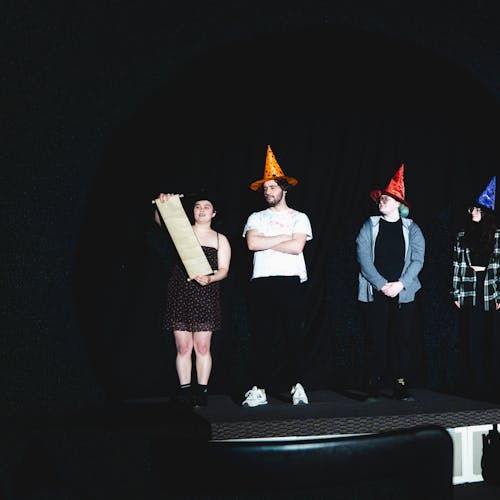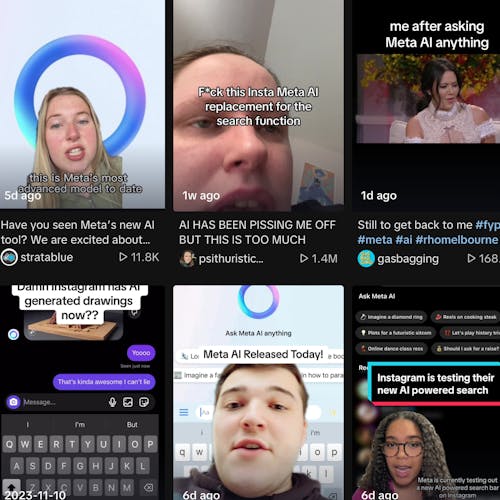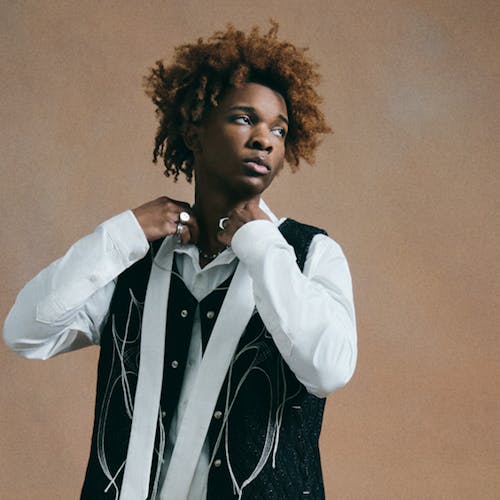Alarming but nothing new: College girls overly sexualized in media

Everyone is familiar with the hyper-sexualization of women in the media. Regardless of age or background — girls, women, female identifying or presenting individuals or femme people of any gender identity all fall victim to this process. In the eyes of society, there is something inherently objectifiable about femininity.
There are loads of female tropes in mainstream movies, TV shows, music, books, etc. that paint caricatures of and define different categories of women: the "MILF," the "Bimbo," the "Virgin," the "the Harlot," the "Teenage Girl," the "Spoiled Girl," the "Sporty/Masculine/Rough-and-Tumble Girl," and the "One of the Boys" girl.
To focus on a trope that may be particularly prominent to Rutgers students, or just students in general, let’s analyze the "college girl" character and stereotype in the media — one that is especially fetishized and constantly sexualized in modern media.
Think of any movie depicting young women in college: "Spring Breakers," "Pitch Perfect," "The House Bunny," "Legally Blonde," etc. All iconic movies are starring young women playing college students.
"Spring Breakers" made a big splash when it came out, as it catered to the college-girl fantasy in several different ways. "Four college girls hold up a restaurant in order to fund their spring break vacation. While partying, drinking and taking drugs, they are arrested, only to be bailed out by a drug and arms dealer," according to IMDB.
The movie feeds into the idea of the "good girl gone bad" trope, something particularly provocative to viewers, as they watch young girls replace their innocence with bikinis, sex and drugs.
In pornography, teens or college girls are one of the most sought-after categories. The number one search term for porn consumers is the word "teen," according to the documentary film produced by Rashida Jones, "Hot Girls Wanted." Additionally, the New York Post reports that one of the top viewed categories viewed globally is "college," at 75 percent.
It's disheartening to see the sexualization of college-aged girls being so highly normalized. Additionally, the "College Girl" trope can be a self-fulfilling prophecy since the male gaze highly praises women for fulfilling this role.
So who is this character? And who decided that these fabricated female traits are what give young women value and desirability?
The college girl trope is youthful, conventionally attractive and, more often than not, is portrayed as straight, cisgender, white and upper-middle class. She is naive and easy to take advantage of.
She's eager, excitable and will often get herself into trouble because of this. She wants to use substances, get drunk or high and be sexually explicit as a result of this intoxication. She wants to 'experiment' sexually. She's either in the process of losing her sexual innocence or is overly sexual.
There's also a frequent theme of queer baiting in these characters. The college girl in the media portrayal wants to drunkenly make out with her female friends. Not because she's part of the LGBTQ+ community but because this event is considered attractive to heterosexual men.
But the college girl is ultimately straight, or ideally straight, in a majority of mainstream content. Not only does this lend to sexualizing college girls, but also it further adds a toll on the constant sexualization of queer women.
In the music industry, this trope is also a major issue. In "Nobody’s Perfect" by J. Cole, the lyrics go, "Oh yeah, to my college girl: Take the weekend off and come home soon / I graduated way too long ago to be sneakin' all in your dorm room."
The completely non-sexual aspects that come with being a college student: residence halls and books are made sexual in a totally unsolicited context.
Only recently have productions begun to rewrite these roles. In shows like "The Sex Lives of College Girls," a more realistic and women-centered perspective is shown.
And yes, it is important to acknowledge that, in reality, college is typically a time of a lot of sexual experimentation and growth for most young people.
But the values of the caricature of the college girl have been harshly enforced into the minds of college students and the rest of the world. The normalization of these unrealistic roles is going to be difficult to undo.
These movie roles, song lyrics, porn categories, books, etc., have translated into real-life expectations and behaviors. It is up to college students now to break these stereotypes down and examine why certain processes or people are sexualized.



